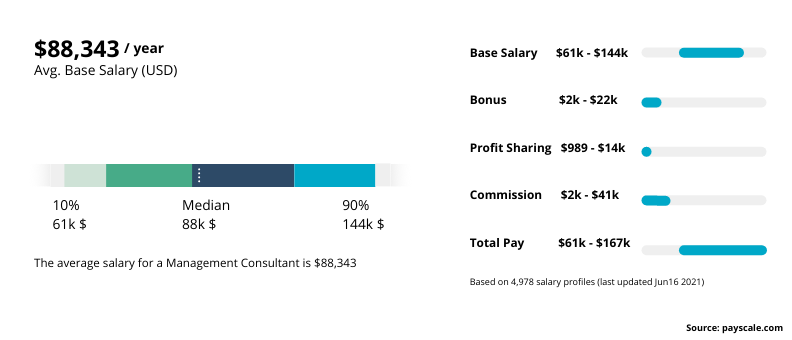
Contracts are a great way to protect your legal rights. It is essential when you own a business or purchase a significant asset. Verbal agreements may be difficult to enforce. It is therefore important that you document the terms of your agreement. It's easy to begin by listing the items and services you will pay for. You should make sure that you are specific as generic terms can cause confusion and lead to overwork.
Signing a contract
Before signing a contract, it's important to read it thoroughly. Doing so ensures that you're not agreeing to any terms that are not clear or that you're not comfortable with. You should also read the terms and conditions to ensure that everything is clear to you. You should pay attention to the terms and conditions, including the length of the contract, the obligations you have under it, and any termination clauses.
Signing a contract may seem difficult, but it can be made easy if you do it correctly. PandaDoc, for instance, can be used to simplify the contract-writing procedure. This tool will allow you to easily generate legally binding written contract and will also create a time-stamped digital sign for you. It also gives you access to a library of professional contract terms.
Contracts
A contract is a key aspect of business success. This reduces the risk of potential problems and facilitates smoother relationships with employees. For small businesses, a contract is just as important for them as for larger ones. It is recommended that you carefully review the contract to ensure that nothing is missed.

Both sides review the initial draft together and sign off on it. To avoid discrepancies, they can use a system to keep track of amendments and previous versions. This often involves legal review and management approval.
As an independent contractor, you can get a contract
Although there are many advantages to hiring independent contractors, there are also disadvantages. Independent contractors are not entitled to workers' compensation benefits or any other benefits provided by employers. They are also responsible in part for their overhead costs (equipment, supplies, and workplace). They are not eligible to receive benefits or unemployment insurance. They must also pay their FICA tax and issue invoices. To avoid this, they must always have a signed contract.
An independent contractor's contract is essential. It protects both the parties from any abuse and provides protection. In the event of a dispute over payment, freelancers can be paid more easily. Contracts explain the services an independent contractor offers, how they will be paid, and when they will do it. The contract establishes the relationship between the freelancer and the hiring party.
Obtained a contract as a customer
An essential part of any freelancer’s relationship is a contract. It sets out the details of the project and sets out the expectations of both parties. In case of disagreement, it can be used as a reference. A good contract will help each party stay on track, and keep the relationship positive.
A contract is legally binding and signed by both of the parties. It helps to ensure that the client keeps its word. It is possible for clients to ask for services that are not part of the contract. This document clarifies any misunderstandings and outlines the terms of the agreement.

Finding a contract template
Finding a contract template is an excellent way to create your own contract. You can save time and focus on other tasks by using a template when you are negotiating with new clients. You should include all details of the services you intend to offer your client in contract templates. This will make it easier to avoid misunderstandings and ensure all parties know their rights.
A contract is critical for your company. It can protect your assets and help you secure payments and sales. You might not have legal recourse if anything goes wrong without a contract. It allows you to negotiate payment terms, and ensures that your company gets the money they owe. Because contracts are vital to almost every business, finding a template is a great way to reduce costs and risks while speeding up the document-creation process.
FAQ
How can I select a consultant?
There are three main factors to consider:
-
Experience - How many years of experience is this consultant? Are you a beginner or an expert? Does her resume demonstrate that she has the required skills and knowledge
-
Education - What did this person study in school? Did he/she study any relevant courses after graduating from high school? Are we able to see evidence of his/her learning through the way he/she writes
-
Personality - Do we like this person? Would we prefer him/her working for us?
-
These questions are used to determine if the candidate is right for us. If there are no clear answers, then it might be worth an initial interview to learn more about the candidate.
What contracts are available for consultants?
Standard employment agreements are signed by most consultants when they are hired. These agreements detail the length of the consultant's contract with the client, the amount he/she is paid, and other important details.
Contracts specify the area of expertise that the consultant will specialize in and the amount they will be paid. For example, the agreement may say that the consultant will provide training sessions, workshops, webinars, seminars, etc.
Other times, the consultant simply agrees to complete specific tasks within a specified timeframe.
Many consultants sign independent contractor arrangements in addition to standard employment contracts. These agreements allow the consultant to work independently but still receive payment for his/her efforts.
What can I expect of my consultant?
Within a few days of selecting your consultant, you can expect to hear back. They will ask you for information about your business, including the mission, goals, products, and budget. Next, they'll provide a proposal describing the scope and estimated time frame, fees, deliverables or milestones, as well as an estimate of costs.
If all goes according to plan, the two sides will sign a written deal. The type of relationship between them (e.g. employer-employee or employer-independent contractor) will determine the terms of the contract.
If everything goes smoothly, the consultant can begin work immediately. He/she will have immediate access to your internal documents, resources, and you'll be able to access his/her skillset and knowledge.
But don't assume that anyone who is a consultant has all the answers. To become an expert in any field you consult, it takes practice and effort. Your consultant should not assume that they know everything about you business.
How long does a consultant take?
The amount of time needed depends on your industry and background. Most people start out with a few months before they find work.
However, consultants can spend many years learning before they are able to find work.
Can consulting be considered a real job?
Consulting isn't just a career option for those who want to earn quick money. It's also a great place to gain valuable skills and build a foundation you can use in your future work.
There are many options for consulting. These include project management, business strategy, strategy, leadership, and training. Projects could include small start-ups or large international corporations.
Consulting offers you the chance to improve and sharpen your skills as well as gain valuable experience across a range industries. This could involve learning to manage and negotiate teams, write proposals or manage budgets.
What happens after the consultant has finished the job?
After the consultant completes their work, he/she will submit a final summary of the results. This report details the project timeline, deliverables, as well any other pertinent information.
After that, you'll go through the report and decide if it meets your expectations. If you are not satisfied with the consultant's report, you have the option to ask for modifications or to terminate your contract.
What qualifications does a consultant need?
You don't just need to have a MBA, you also need to demonstrate your ability as a business consultant. You must have at least two years' experience working in consulting and/or training within a large company.
You must have worked closely with senior management teams on strategy development projects. This will require you to be comfortable sharing your ideas with clients and getting their buy-in.
You will also need to pass a professional qualification test such as the Chartered Management Institute Certified Management Consultant certification (CMC).
Statistics
- On average, your program increases the sales team's performance by 33%. (consultingsuccess.com)
- According to statistics from the ONS, the UK has around 300,000 consultants, of which around 63,000 professionals work as management consultants. (consultancy.uk)
- Over 62% of consultants were dissatisfied with their former jobs before starting their consulting business. (consultingsuccess.com)
- Over 50% of consultants get their first consulting client through a referral from their network. (consultingsuccess.com)
- "From there, I told them my rates were going up 25%, this is the new hourly rate, and every single one of them said 'done, fine.' (nerdwallet.com)
External Links
How To
How To Find The Best Consultant?
It is important to first ask yourself what you expect from a consultant when searching for one. You should know exactly what your expectations are before you start searching for someone. You should make a list of all the things you need from a consultant. These could include professional expertise, technical skills and project management abilities, communication skills, availability, and other things. After you have listed your requirements, it might be a good idea to ask colleagues and friends for their recommendations. Ask them about their experiences with consultants and compare their recommendations to yours. Do some internet research if they don't have recommendations. Many websites allow people to post reviews about their work experience, including Angie's List and Indeed. You can use the comments and ratings left by others to help you find potential candidates. Once you have a shortlist, be sure to contact potential candidates directly to schedule an interview. Talking through your requirements during the interview is a good idea. Ask them questions about how they can assist you in achieving those goals. It doesn’t matter if the person was recommended to you; it matters that they understand your business goals, and can show you how they can help.